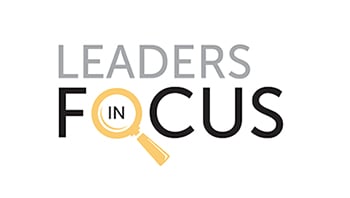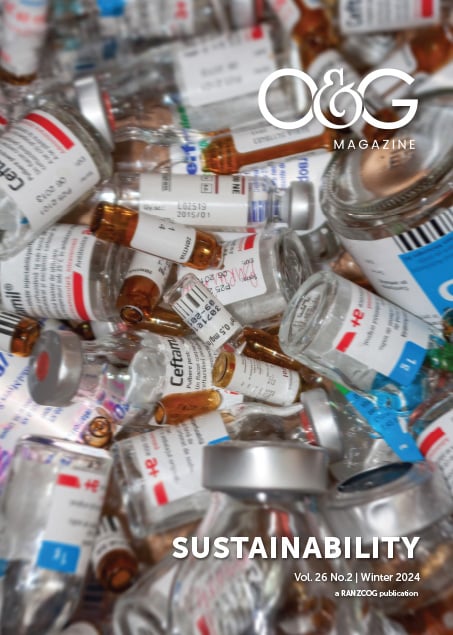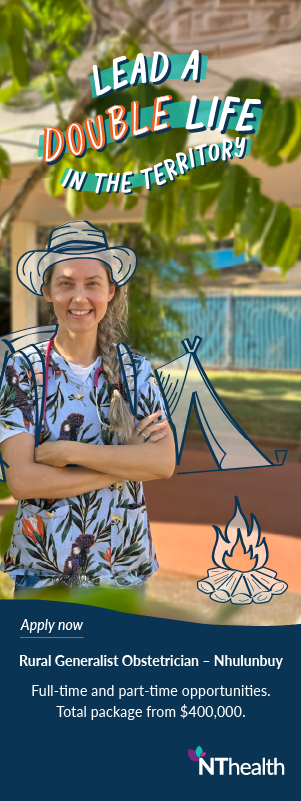
This feature sees Professor Kirsten Black in conversation with women’s health leaders in a broad range of leadership positions. We hope you find this an interesting and inspiring read.
Join the conversation on Twitter #CelebratingLeadership @RANZCOG
Kris, you have emerged as a leader in climate and sustainability within RANZCOG, what drove you to ensure these issues were addressed by the College?
I became involved with environmental advocacy because I was feeling a lot of grief and anger, and doing nothing wasn’t an option anymore. As an obstetrician, it’s a natural fit for me to focus my energies on the intersections between women’s health and rights and the environmental crisis. I was inspired by the leadership shown by the Australian Medical Association (AMA) and other medical colleges, and I wanted RANZCOG to be part of that.
Where do you feel RANZCOG can have the biggest impact in the sustainability field?
I don’t think most of us appreciate how respected the medical colleges and doctors are among policymakers and the public. We can show leadership by supporting the science around environmental threats and how these harm women’s health, and promoting the actions needed to minimise those harms. We can build an ethos of sustainability that enables fellows and members to make changes in their professional and private lives and become leaders in their communities. There’s a push to get sustainability embedded in medical school and specialty training curricula and I think we should embrace that. The health system is a major contributor to greenhouse gas emissions and waste, and probably the most effective thing we can do about that is to practice evidence-based medicine with an emphasis on prevention and avoiding unnecessary interventions.
What are some “low-hanging fruit” items that the College could achieve?
Nitrous oxide is a potent greenhouse gas and leakage from piped systems is a major source of health system emissions, as well as being an occupational health hazard for midwives especially. I’d like to see RANZCOG provide resources and encourage fellows to raise the issue with their institutions.
It’s not low-hanging fruit, but something we need to look at urgently are the specific challenges that women and women’s health services face in times of crisis. With extreme weather events and natural disasters such as floods and fire becoming more frequent and severe, we all need to be aware of the vulnerabilities of our patient populations and workplaces and have strategies in place. I can see a clear role for the College here.
How do you describe your leadership style?
I think of myself as a facilitator rather than a leader—although I guess that’s a form of leadership. I love helping people become involved in ways that chime with their passions and skills and linking them in with other people who have similar or complementary interests.
Who do you look up to for inspiration or mentorship in the climate and sustainability arena?
Professor Linda Giudice from the USA has been an incredible force in conducting research and raising awareness about environmental threats to reproductive health. Christiane Figueras is an international leader in climate negotiation, and also, when you listen to her podcasts “Mothers of Invention” and “Outrage and Optimism”, she is very grounded and very funny. Bob Brown is another huge source of inspiration. But those are just the famous ones. I’m inspired by people around me daily. One of the most rewarding things about the environmental groups that I’ve been involved in is the lack of hierarchy. I’ve been especially inspired by the kids who organised the school strikes for climate, and the group of medical students I worked with to organise the 2019 Doctors for the Environment Australia conference in Hobart.
How do you maintain optimism regarding the issues of climate change and sustainability?
Right now, I’m working on acceptance, because there’s such a huge discordance between how the world should be and how it is. It’s easy to stay in our privileged bubble, and it’s easy to be paralysed by nihilism and despair. I ask myself what it means to live with dignity in a time of crisis, and how I’m going to justify myself to my grandchildren.
I try to focus my attention on the places where I have some agency and might make a difference, and to find a balance between working on individual change and systemic issues. For mental health, I find it helps to be part of a community of people with shared concerns, to practice gratitude, and to get out into nature as much as possible. And I’ve found it enormously rewarding to step outside of the Western scientific paradigm and explore other ways of understanding environmental and social issues – historical perspectives, indigenous world views, literature and poetry.
How can RANZCOG fellows get involved in climate and sustainability through RANZCOG?
We’re in the process of forming a RANZCOG Environment and Sustainability Working Group. Expressions of Interest are currently being sought through RANZCOG Connect, and will stay open until after this edition of O&G magazine is published. I’m hoping one of the group’s first projects will be to set up a network within RANZCOG that members can access for resources and share their concerns, experiences and stories.







Leave a Reply